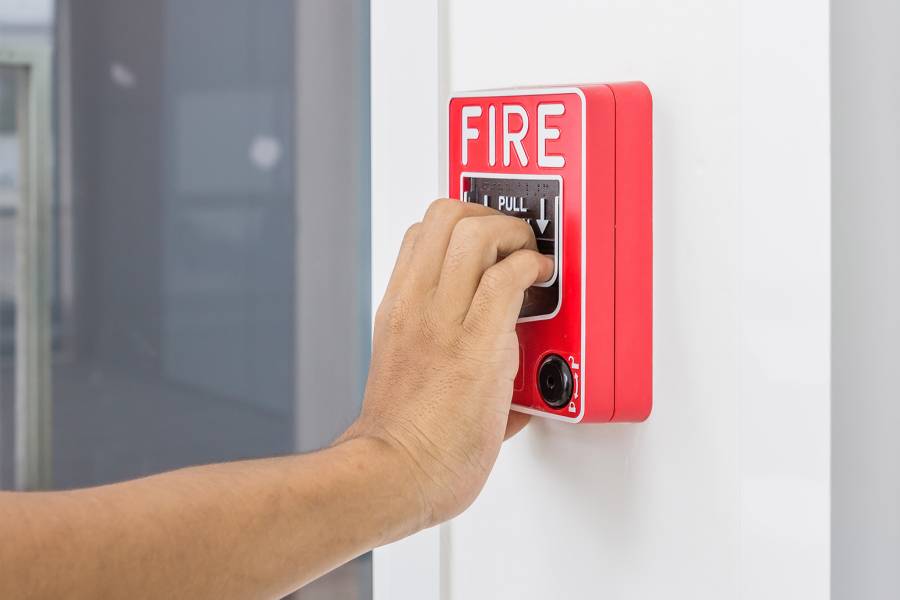 According to data from the Home Office, fire and rescue services attended 153,278 fires in England in 2020. That represents a 3% decrease on the previous 12 months, but still works out at almost 420 per day.
According to data from the Home Office, fire and rescue services attended 153,278 fires in England in 2020. That represents a 3% decrease on the previous 12 months, but still works out at almost 420 per day.
There were also 221 fire-related fatalities during that period – a stark reminder, if one were needed, at how deadly such incidents can be. These statistics also serve to highlight the importance of installing effective fire alarm systems in both commercial and domestic buildings. But what are the different types of systems, and which settings might they prove most useful for?
In commercial buildings
All business owners have a responsibility to protect their employees’ welfare at all times, and a fire risk assessment plays a crucial role in that process. It should include an analysis of the emergency exits and routes to them, the effectiveness of the detection and warning systems, the quality of the equipment such as extinguishers and blankets as well as the needs of any vulnerable people inside the building.
An assessment should identify any potential hazards and those who might be at risk before removing those threats. All findings should be carefully recorded and reviewed on a regular basis. In line with British Standards 5839-1, all detection and alarm systems in non-domestic premises should be tested once a week to ensure they’re working correctly.
And there are different systems for various purposes. A conventional fire alarm will identify a floor or zone where there is a problem, whereas addressable alarms – also available in wireless form – can be more specific in pinpointing the exact location of the fire.
In domestic buildings
All domestic residences should be fitted with fire or smoke alarms, of which there are many different kinds:
- Heat alarms: These will pick up temperature increases but not smoke, which makes them suitable for kitchens. However, if you have a sizeable kitchen you may need more than one as they do not cover large areas.
- Ionisation: A cost-effective option, they will sense very small smoke particles from fires that flame quickly. That sensitivity means they are not always well suited to kitchen environments, but they can usually pick up on fires before the smoke becomes too thick.
- Optical: More expensive than ionisation alarms, these are better at picking up slower burning fires and are less likely to go off for minor issues such as burnt toast.
- Combined alarms: These boast the functionality of optical and heat alarms in one device and help to limit the number of false alarms, while there are also units that combine smoke and carbon monoxide alarms.

Founder Dinis Guarda
IntelligentHQ Your New Business Network.
IntelligentHQ is a Business network and an expert source for finance, capital markets and intelligence for thousands of global business professionals, startups, and companies.
We exist at the point of intersection between technology, social media, finance and innovation.
IntelligentHQ leverages innovation and scale of social digital technology, analytics, news, and distribution to create an unparalleled, full digital medium and social business networks spectrum.
IntelligentHQ is working hard, to become a trusted, and indispensable source of business news and analytics, within financial services and its associated supply chains and ecosystems











